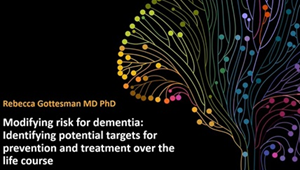Linda K. McEvoy, PhD
Biography
Linda K. McEvoy, PhD, is an experimental psychologist and neuroscientist with acquired expertise in aging epidemiology. As a senior investigator at Kaiser Permanente Washington Health Research Institute (KPWHRI) and professor emerita at the University of California San Diego, Dr. McEvoy works to improve the understanding of cognitive and brain changes in typical aging and in neurodegenerative disorders such as Alzheimer’s disease. Her mission is to better understand the factors throughout the life course that affect cognitive and brain health in aging, in order to develop strategies to maintain cognitive health and reduce risk of dementia.
Before joining KPWHRI, Dr. McEvoy was a professor of public health and radiology at UC San Diego, where she conducted research on longitudinal cohort studies to identify typical patterns of changes in brain structure with aging and to distinguish them from patterns associated with early Alzheimer’s disease. Her research also sought to identify genetic, health, and behavioral risk factors associated with higher rates of cognitive decline with age and with dementia.
She was one of the principal investigators on the Rancho Bernardo Study of Healthy Aging, initiated in 1972. She assumed a leadership role on this study in 2014, expanding data collection to include neuroimaging and directing the electronic archiving and sharing of the vast amount of data collected by this study. She was also an investigator on the Vietnam Era Twin Study of Aging — a national study of male twin pairs who were recruited into the military during the Vietnam War era and who have been followed from middle age into older age.
More recently, using data from the Women’s Health Initiative, Dr. McEvoy has expanded her research focus to examine blood-based measures, including proteomic and epigenetic factors, that may predict risk of cognitive decline and dementia. At KPWHRI, she continues to study factors across the life course that influence cognitive health as a lead investigator on the ground-breaking Adult Changes in Thought (ACT) Study.
In addition to her research, Dr. McEvoy enjoys mentoring students, fellows, and junior faculty. At UC San Diego, she had leadership roles on several aging and Alzheimer’s disease training programs funded by the National Institutes of Health (NIH), and she taught courses in grant writing to junior faculty. She enjoys sharing her knowledge on the characteristics of successful grant applications, which she has accumulated through service on several NIH study sections, including her current service as a standing member of the Center for Scientific Review Adult Psychopathology and Disorders of Aging Study Section.
Research interests and experience
-
Aging & Geriatrics
-
Dementia
-
Genetic Risk Factors of Alzheimer’s Disease
-
Neuroimaging Data
-
Social Determinants of Health
Recent Publications
Posis AIB, Shadyab AH, Parada H, Alcaraz JE, Kremen WS, McEvoy LK Multimorbidity, Social Engagement, and Age-Related Cognitive Decline in Older Adults from the Rancho Bernardo Study of Healthy Aging 2024 Jan;97(4):1689-1702. doi: 10.3233/JAD-230809. PubMed
Williams ME, Elman JA, Bell TR, Dale AM, Eyler LT, Fennema-Notestine C, Franz CE, Gillespie NA, Hagler DJ Jr, Lyons MJ, McEvoy LK, Neale MC, Panizzon MS, Reynolds CA, Sanderson-Cimino M, Kremen WS. Higher cortical thickness/volume in Alzheimer's-related regions: protective factor or risk factor? Neurobiol Aging. 2023 May 9;129:185-194. doi: 10.1016/j.neurobiolaging.2023.05.004. PubMed
Richard EL, McEvoy LK, Deary IJ, Davies G, Cao SY, Oren E, Alcaraz JE, LaCroix AZ, Bressler J, Salem RM. Markers of kidney function, genetic variation related to cognitive function, and cognitive performance in the UK Biobank. BMC Nephrol. 2022 Apr 27;23(1):159. doi: 10.1186/s12882-022-02750-6. PubMed
Miyazaki M, Malis V, Yamamoto A, Kungsamutr J, McEvoy LK, McDonald MA, Bae WC. Physical exercise alters egress pathways for intrinsic CSF outflow: An investigation performed with spin-labeling MR imaging. Magn Reson Med Sci. 2023 Mar 11. doi: 10.2463/mrms.mp.2023-0005. Online ahead of print. PubMed
Rosenthal SB, Wang H, Shi D, Liu C, Abagyan R, McEvoy LK, Chen CH. Mapping the gene network landscape of Alzheimer's disease through integrating genomics and transcriptomics. PLoS Comput Biol. 2022 Feb 25;18(2):e1009903. doi: 10.1371/journal.pcbi.1009903. eCollection 2022 Feb. PubMed
Research

Autopsy study links BP drugs to possible brain benefits
Research supports theory that some blood pressure medications may provide extra protection against dementia.
News

ACT Research Symposium meets virtually to discuss brain aging science
This year’s symposium was a virtual event drawing over 130 attendees.
Research

Can preventing hearing loss reduce dementia risk?
New research from Linda McEvoy, PhD, helps explain how hearing loss affects the brain.



